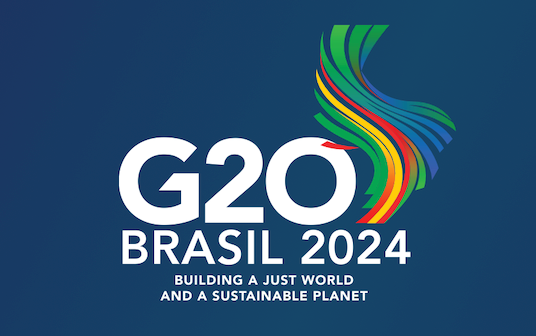On November 18 and 19, 2024, the G20 Leaders’ Summit was held in Rio de Janeiro, Brazil, with the presence of the leaders of the 19 member countries, as well as the African Union and the European Union.
- A major achievement was the launch of the Global Alliance Against Hunger and Poverty, which aims to mobilize resources and strategies to address food insecurity, particularly in developing countries.
- This new initiative is to accelerate the achievement of Sustainable Development Goals 1 (No Poverty) and 2 (Zero Hunger).
- The Alliance includes 81 countries (including India), 26 international organizations, 9 financial institutions, and 31 philanthropic and non-governmental organizations.
- The G20 outcome document highlighted significant progress on:
- Commitment to triple renewable energy capacity by 2030 and double global energy efficiency.
- Unprecedented focus on addressing structural inequalities and promoting racial equality.
- Recognition of AI’s economic potential and ethical risks, leading to the creation of a High-Level Instance for technology governance.
- In 2025, Brazil will assume the BRICS presidency, with the bloc expanding to include Saudi Arabia, Iran, UAE, Egypt, and Ethiopia, alongside the original members: Brazil, Russia, India, China, and South Africa.
- The New Development Bank (NDB) – the BRICS Bank – will play a crucial role in financing energy transitions in Global South nations, supporting decarbonization of the energy mix.
- Sprints 2030: The Alliance has identified 6 high-impact areas known as “Sprints 2030,” which target specific initiatives for vulnerable populations.
- School meals
- Cash transfers
- Smallholder farming support
- Socio-economic inclusion
- Maternal and early childhood interventions
- Water access solutions
- Unlike other initiatives, the Alliance does not have its own exclusive fund. Instead, it acts as a platform connecting countries with donors and technical partners.
- Alliance’s annual operational budget of $2-3 million is sourced from member countries and international institutions like FAO, UNICEF, and the World Bank.
- Prime Minister of India emphasized that countries in the Global South are the most impacted by global crises such as food, fuel, and fertilizer shortages caused by ongoing conflicts.
- He said, India believes in the approaches of “Back to Basics” and “March to Future” by promoting organic farming, popularizing millets, and encouraging climate-resilient crop varieties, developing Digital Agriculture Mission, and integrating traditional farming with new technologies to enhance sustainability, nutrition, and food security.

